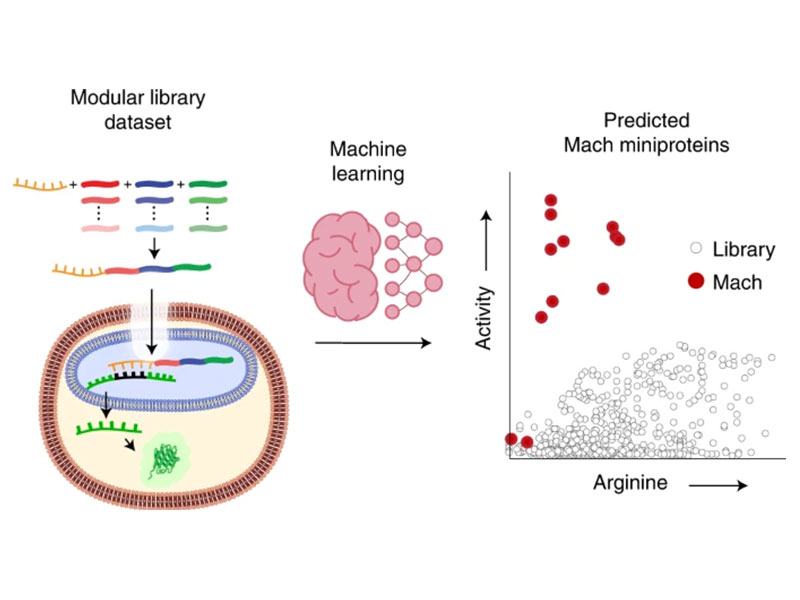
Deep learning to design nuclear-targeting abiotic miniproteins

Deep learning to design nuclear-targeting abiotic miniproteins
Nature Chemistry volume 13, pages992–1000 (2021)
Carly K. Schissel, Somesh Mohapatra, Justin M. Wolfe, Colin M. Fadzen, Kamela Bellovoda, Chia-Ling Wu, Jenna A. Wood, Annika B. Malmberg, Andrei Loas, Rafael Gómez-Bombarelli & Bradley L. Pentelute
Abstract
There are more amino acid permutations within a 40-residue sequence than atoms on Earth. This vast chemical search space hinders the use of human learning to design functional polymers. Here we show how machine learning enables the de novo design of abiotic nuclear-targeting miniproteins to traffic antisense oligomers to the nucleus of cells. We combined high-throughput experimentation with a directed evolution-inspired deep-learning approach in which the molecular structures of natural and unnatural residues are represented as topological fingerprints. The model is able to predict activities beyond the training dataset, and simultaneously deciphers and visualizes sequence–activity predictions. The predicted miniproteins, termed ‘Mach’, reach an average mass of 10 kDa, are more effective than any previously known variant in cells and can also deliver proteins into the cytosol. The Mach miniproteins are non-toxic and efficiently deliver antisense cargo in mice. These results demonstrate that deep learning can decipher design principles to generate highly active biomolecules that are unlikely to be discovered by empirical approaches.



